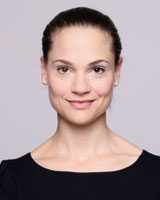Prof. Dr. Anna Schneider
Anna Schneider has a doctorate in psychology and is a professor of business psychology at the Trier University of Applied Sciences. In research and teaching, she deals with the effects of digitization on consumer behavior. She also serves on the adivsory board of www.ageforce1.com
Prof. Schneider, you teach business psychology at the Fresenius University of Applied Sciences in Cologne and have often dealt with the topic of aging and retirement. What distinguishes people who will retire in 2022 from people who have been retired for 20 years?
First of all, I would like to state that old age is not the same as being “on the scrap heap”. On the contrary, the high potential of these phases of life should not be left unexploited, but used. Unfortunately, some companies have not recognized this to this day, which I very much regret. I hope that will change soon.
People retiring today differ in terms of significant life events and biographical challenges from people who retired 20 years ago. Individuals retiring now witnessed the economic boom and "miracle" in their childhood and early adulthood. In contrast to the cohorts before them who had to witness world war(s). This means that these early experiences and imprints differ significantly when comparing these cohorts.
What does retirement do to people from a psychological point of view?
This is a question that sounds simple at first, but is not that easy to answer. The experience of the new phase of life and the associated challenges sometimes differ significantly. In addition to individual and personal characteristics, it is also important, for example, how important the job was for the person concerned. Was the job a "calling" or was it more to finance your life? People who have found their "calling" in their job have been able to experience self-efficacy, beautiful experiences, autonomy, but also community in their working life. Sometimes the profession determined life so much that private life was also strongly oriented towards it. In this case, leaving the job is a different challenge than if the job played a less important role. So, if you give up a job or a vocation, then overnight many aspects that have strengthened and encouraged you will disappear overnight. In addition, the usual daily structure simply disappears. Coping with this new condition is very challenging and represents a life crisis in a psychological sense. This means that the transition to retirement is a challenge to be faced. But you can do that proactively and successfully. For example, it is important to consciously look for activities and an environment in which you can live on your own strengths and passions. This can mean, for example, doing voluntary work, looking after the grandchildren more, or even learning a language.
Do you notice differences between men and women when it comes to planning and living the new phase of life?
There are certainly differences here, although these should not be associated with gender alone. Roughly summarized, you can observe that women continue to focus more on social contacts. This means that women (not only) after retirement have built up a stable and not purely professional network. Friends, family and long-standing friendships make the transition to retirement easier because these networks tend to be expanded and deepened here. For men, who often played the role of the main breadwinner, the challenge is that professional contacts and structures are lost, which then have to be compensated.
"Retirement" is also often called "non-retirement". In your experience, what are the most popular activities to “escape” the quiet and why does the quiet not seem desirable?
Unretirement, that's a nice and appropriate term, I think. In my own environment, too, I keep noticing that retirees in particular are the ones who have the most to do. Restfulness as such does not seem to be desirable. Presumably because the old saying "He who rests, rusts." is firmly anchored in people's minds. Why should someone who was fully engaged in professional life lie on the sofa all day? People do not change through retirement, but remain relatively constant in terms of their characteristics, desires and goals. But with the free time now available, they simply have other opportunities to live out their passions. And so that retirement can be enjoyed for as long as possible, there is a need to keep fit not only physically but also mentally for as long as possible.
Can or how can companies offer suitable products and services for this new situation?
First of all, we should stop making a single target group out of people over 50 years of age. Even if terms like "Golden Ager", "Best Ager" or "Silver Surfer" may sound snappy, this means that a large and very heterogeneous group of people are lumped together. One 50+ can be very different from another. It's a bit presumptuous to approach someone who is 51 years old, running a marathon and in the middle of a job with the same products and services as someone who is 97 years old and may already have a health condition.
In order to offer suitable products and services, it would make sense to involve older consumers in the development of these products and services right from the start. After all, who, if not you, knows best which offers are actually needed?
You can find our comprehensive information on the stage Retired here.

